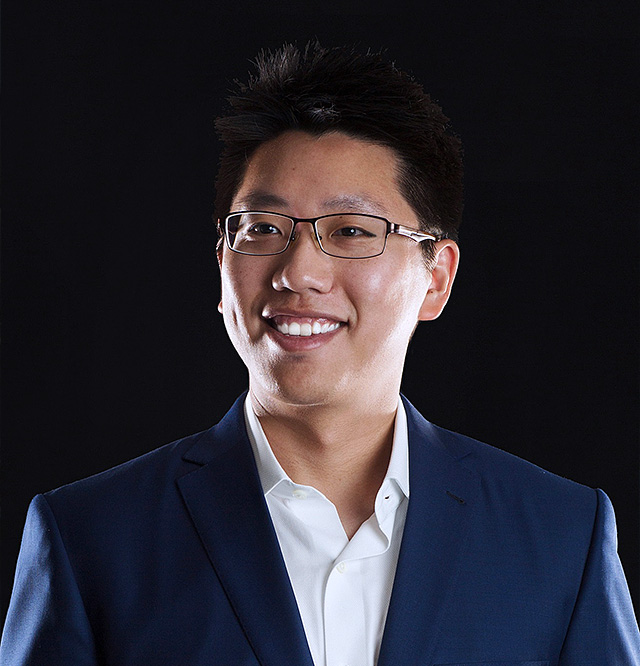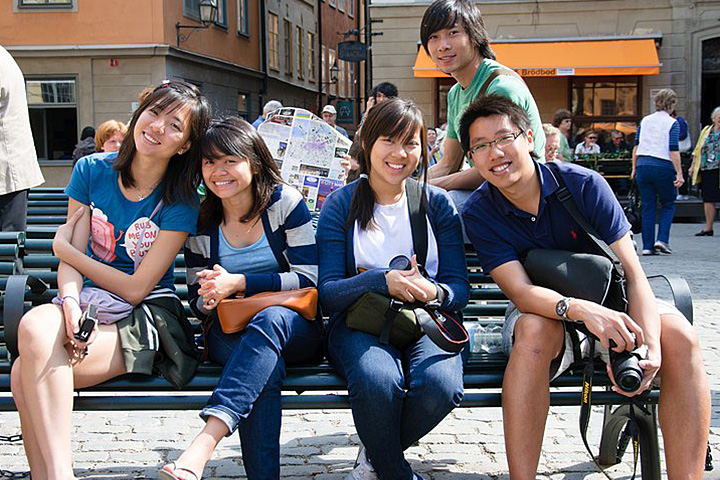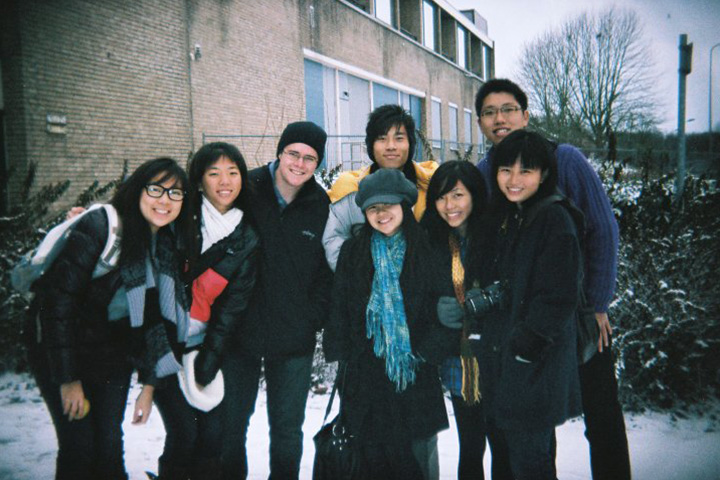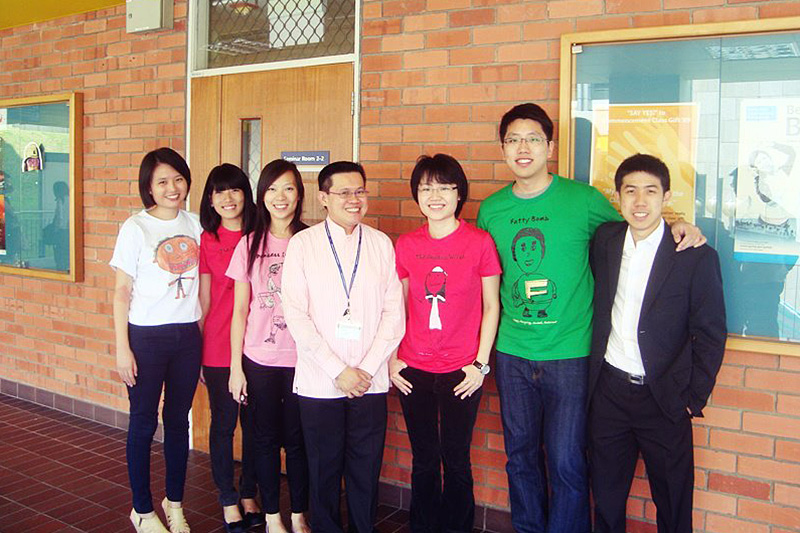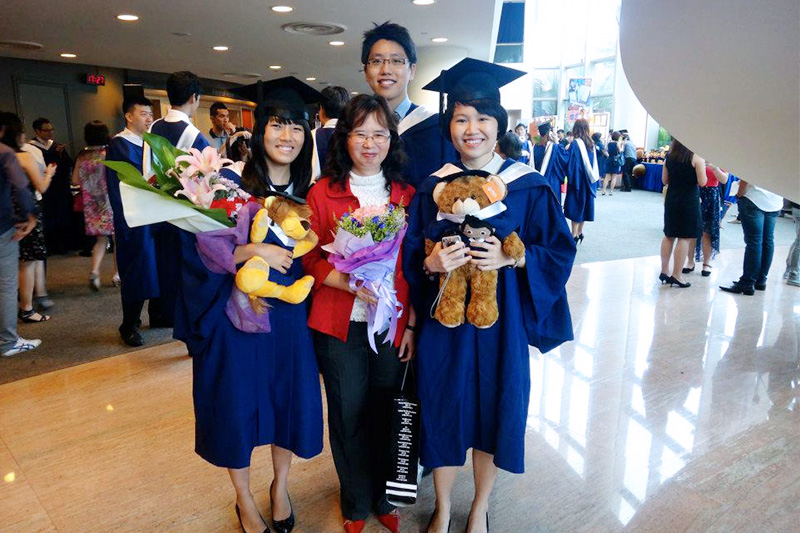Woon Tien Yuan (BBA 2012), who is Director of Killiney Kopitiam, has an important responsibility: Guide his family business, a sprawling coffee shop empire built by his father and three uncles, into the future.
He shared with Outside-In what it is like for Bizaders to work in a family business and his initiatives to future-proof Killiney.
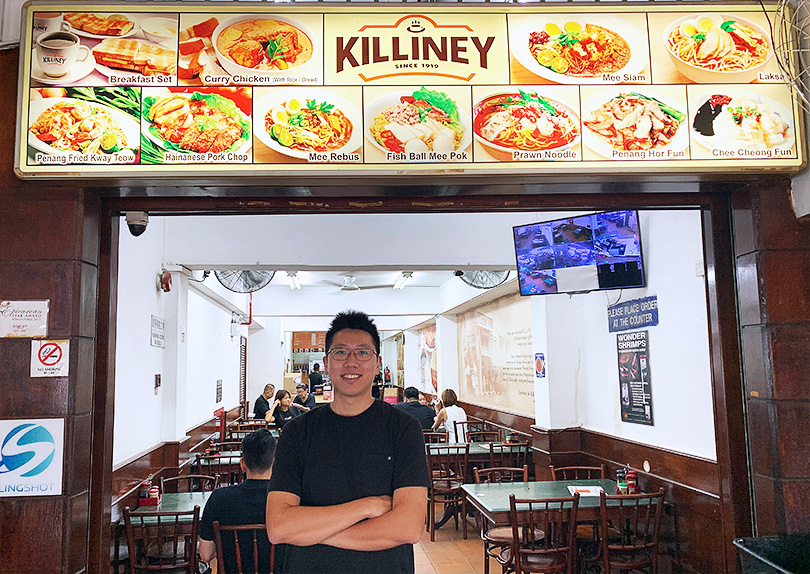
Tien Yuan in front of a Killiney branch
Q: Succession in a family business can be challenging. What’s Killiney’s approach to this?
Succession planning in a family business is always tricky and delicate. To me, the most pertinent issue is striking a balance between planning for business growth vis-à-vis maintaining family cohesion. In this aspect, I always turn to the advice of my good friend, Ken (who is also currently involved in his family business) who always openly shares with me his views and advice. To him, the dynamics of a family business, metaphorically speaking, are like family members standing at the extreme corners, all connected by a rope.
To be successful, there needs to be constant tension where every member contributes their own expertise and inputs. This tension cannot be too strong, otherwise it will affect cohesion. It also cannot be too slack as lack of a team effort would result in stagnation of growth. Every day, I am learning my ropes at maintaining and striking this balance.
At Killiney, my family elders welcome inputs from my generation in terms of how to grow the family business. But for whoever that comes in, he/she needs to maintain this respect for the elders while constantly pushing and challenging certain long-established practices.
At the end of the day, I personally always maintain the belief that family cohesion comes first, so if we are in a scenario where not everyone agrees on a possible business decision, we would rather not proceed. While some may lament this as slowing down the decision-making process, I prefer to view it as a challenge as it gives me extra motivation to work harder and do a lot more ground work to convince all my elders. To me, that’s the beauty and also the fun of running a family business.
Q: What is it like working with the first generation leaders and seniors?
The key to cross-generational collaboration is communication. Sometimes we might assume that our elders know what we are thinking about, but this might not be the case due to the generation gap. Therefore, it is worthwhile to go the extra mile and explain everything in detail. Doing that bridges a lot of gaps and helps in the overall working relationship.
Whenever I have a new idea, I will challenge myself to think about what it would take to convince my elders. For example, when I got to know the team at Hoow Foods, a foodtech start-up which specialises in food reformulation, I knew it would be good for Killiney to work with them. However, as with most traditional businesses, it is always a challenge to convince the elders to work with a start-up as they tend not to have an established track record.
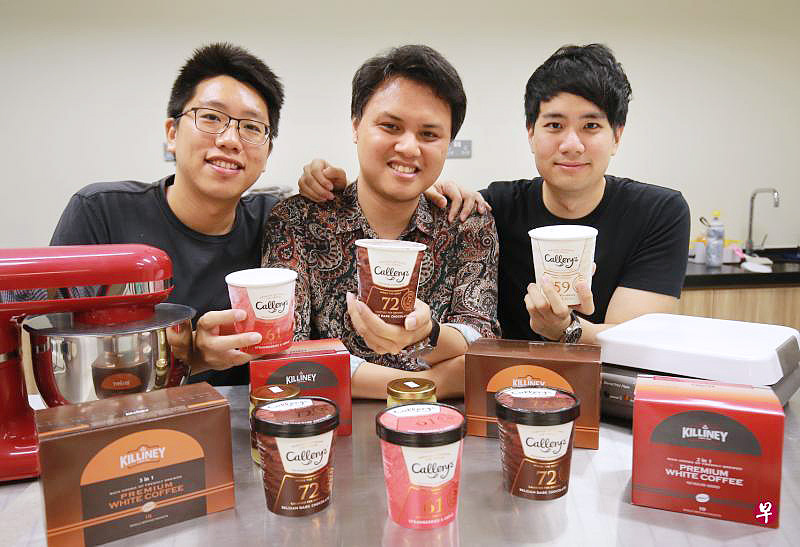
Tien Yuan with the Hoow Foods team
My approach to business is based on academic theory and corporate practice. I spent a lot of effort communicating and explaining to my elders what this start-up was doing and how it could benefit our family business in the long term. What happened at the end was I proposed to my elders to give the team a “challenge” in helping with the reformulation of Killiney’s instant beverages. If the Hoow Foods team performed well at this trial, their success would bridge the gap with the elders. And kudos to the team; they managed to impress my elders and it helped kick-start our collaboration.
Q: Looks like you have quite a number of initiatives going on as you look to transform Killiney, from driving innovation with food tech to driving sustainability goals. How do you keep things in balance?
Yes, there are several initiatives going on as we embark on a long-term journey to transform Killiney. Personally, the way I approach this is to have an open mind and to seize each opportunity as it comes by. Sometimes people tend to look back and regret not acting on something when presented with the chance to. Successful businessmen know that timing and luck are important factors to success. For me, seizing the opportunity at the right time is key. For example, when Killiney was faced with some quality issues of our 3-in-1 premium coffee product, I happened to reconnect with my primary school classmate, Yau Png, who co-founded Hoow Foods. This reconnection provided me the opportunity to “challenge” the team at Hoow Foods. From there, the relationship surfaced many other possibilities and opportunities that we are now pursuing.
Q: When you joined Killiney, you started off looking after the family’s foundation, the Woon Brothers Foundation. How has this influenced your approach to leadership?
Art collecting has taught me to appreciate the intangible yet valuable lessons of having a long-term vision and the importance of commitment. Applying this to our Killiney business, we decided to invest in new food technology. With research and development capabilities, we are now able to drive innovation, either through reformulating existing products or creating new offerings.
On another level, taking a long-term approach also means looking beyond the traditional brick and mortar outlets that Killiney is often associated with. In the future, we aim to create more FMCG products that will allow Killiney to tap on the export markets and reach out to consumers worldwide. On a business level, our approach is to grow Killiney into an international brand, while maintaining our proud Singaporean heritage.
Q: As an SME, how is like for you to recruit young talent?
Frankly speaking, yes it remains challenging for most SMEs to compete with MNCs for talent, especially if we are talking about university graduates. When I first joined the family business, I was pretty surprised by the pay gap difference between similar roles in SMEs and MNCs. This gap further widens with work experience. For example, a university graduate with 5 years of work experience in an MNC will probably earn much more than one who works in a SME. This is the unfortunate reality for most SMEs in Singapore. To remain competitive, SMEs have to think of other ways to attract and retain talent. For Killiney, we view investing in start-ups, such as Hoow Foods, as one innovative method, to provide us with the relevant technology and talent to grow and improve the business. Nevertheless, we are always open to attracting talent through positioning ourselves as a local heritage brand with international ambitions.
Q: How did your time in Business School help prepare you for life in Killiney?
One major takeaway from my time in Business School is the strength of teamwork. Back during school days, we had to do team project work for almost every module. Through these assignments, I have learnt the importance of collaboration. Everyone in the team has his/her respective strengths and weaknesses, and it is crucial to identify individual capabilities to unleash the team’s full potential. Applying this to real life business, we always try to find the right person for the right job so that the business can grow.
I do still keep in close contact with several of my NUS Business School friends, which include Minqi and Amelia, who are entrepreneurs running a yacht charter business and a chiropractic chain respectively. We keep in touch regularly to share our experiences in the entrepreneurial journey, which at times may be challenging financially and mentally. As we are all trying to carve out our own respective careers, I do see a lot of commonalities in this journey and I feel it would good for us to share with each other so we avoid certain pitfalls.
Q: What do you remember most at your time here?
Aside from the lifelong friends I have made in NUS Business school, a memorable experience is the student exchange programme which is offered to Bizad students. During my 2ndyear in NUS, I had the opportunity to attend Maastricht University, Netherlands, for a 6-month exchange programme. Staying and studying overseas definitely taught me how to be more independent. Interacting with other international and Dutch students have also broadened my perspectives in many aspects.
Tien Yuan (right) with his classmates in Maastricht
Looking back, this experience has no doubt encouraged me to look beyond Singapore to grow our family business. I thoroughly enjoyed this 6-month stint and I truly believe that all Bizad students will benefit in one way or another from this global experience. Back then, I did have a few school mates who were interested but were unable to experience the student exchange programme due to financial difficulties. This probably explains why I am in the midst of setting up a bursary to sponsor/support financially-challenged Business students so that they can participate in and benefit from such programmes.
Personally, a couple of Business modules also left a lasting impression on me. For example, I attended the Social Entrepreneurship module which was taught by Associate Professor Albert Teo; and I did my final year project with a Malaysia-based social enterprise eHomemakers/ Salaam Wanita under the guidance of Senior Lecturer Wu Pei Chuan.
Left: Tien Yuan (in green) and his classmates with Albert (centre, in white).
Right: Tien Yuan with Pei Chuan (centre) during Commencement.
Looking back, these two professors have taught me the importance of doing business with social responsibility in mind. While it is understandable that businesses need to make money, they should be done in a manner which can create a positive social impact and a sustainable future. This has inspired me to transform my family F&B business by adopting food technology practices to provide affordable food for our customers while reducing food wastage.
Q: What advice do you have for your juniors at Business School?
Don’t be too quick to pass on the chance to join an SME. MNCs are always attractive places to work but SMEs make up the majority of businesses in Singapore. In fact SMEs provide a good platform, especially for fresh graduates, to get on the ground and accumulate a wide variety of hands-on experience. This experience accelerates one’s learning process and will be very helpful for his/her future career.
For those who have a chance to join their family business – don’t hesitate to do so. Every family business is unique in its own way and I see it as our honour and duty to step out and offer to help. At the end, nothing beats making your own family business a bigger success than it is.






